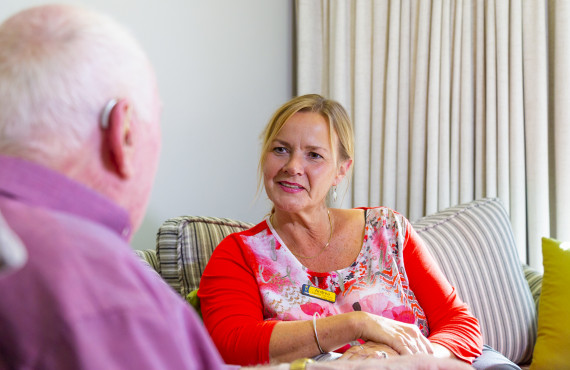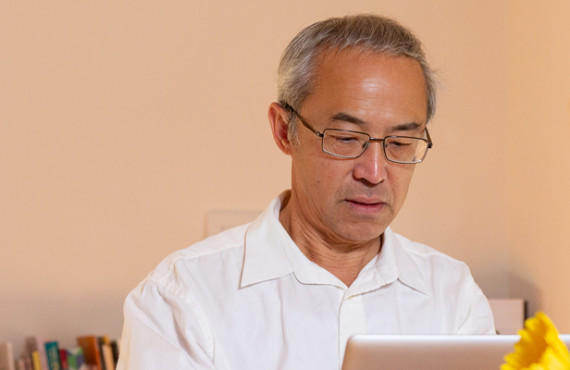Early menopause, temporary or permanent, can be a side effect of cancer treatment.
What is menopause?
Menopause is the end of a woman's monthly menstrual period (monthly flow of blood).
Menopause occurs when a woman’s ovaries no longer produce eggs. This results in her periods stopping and a drop in the level of female hormone (oestrogen). This generally occurs between the ages of 45 and 55.
There are different stages of menopause:
- pre-menopause - when a woman has regular monthly periods
- peri-menopause - when menopausal symptoms start (hot flushes and irregular periods)
- menopause - the last menstrual period
- post-menopause - 12 months following the last menstrual period
Menopause symptoms
- changes to your menstrual period cycle
- hot flushes and night sweats
- a dry vagina
- lower sex drive (libido)
- bladder problems
- sleep problems
- tiredness for no reason (fatigue)
- aching bones
In general, for all women, menopausal symptoms can last around 1 to 5 years. Symptoms improve over time.
Menopause caused by cancer treatment starts suddenly.
Cancer treatment and early menopause
Cancer treatment such as surgery, chemotherapy, radiation and hormonal treatment can cause early menopause. This means that you will no longer be able to get pregnant (infertility).
This menopause can be temporary or permanent.
Temporary menopause is more common among women who are younger than 35 at the time of treatment. If menopause is temporary, menstrual periods may return within 1 year of ending treatment.
Permanent menopause is more common among women who are 40 or older at the time of treatment.
Speak with your treatment team about your risk of early menopause and infertility before you start treatment.
Hormone replacement therapy (HRT)
Hormone replacement therapy (HRT) can help ease the symptoms of menopause.
The most common forms of HRT contain the hormones oestrogen and progesterone. HRT may not be recommended after breast or ovarian cancer. Talk with your treatment team about whether HRT is right for you.
Managing menopausal symptoms
Every woman’s experience of menopause is different. Symptoms of menopause may affect your everyday life.
Some ways to manage the symptoms of menopause are:
Staying healthy after treatment can help reduce the risk of osteoporosis, heart disease, and help with early menopause.
Reduce
- don’t smoke tobacco
- eat a balanced diet with plenty of fruit, vegetable and milk products
- get enough vitamin D - discuss with your doctor
- keep a healthy body weight
- keep physically active
- avoid or limit alcohol
- take time for relaxation, for example, yoga, or self-awareness through meditation
- wear lightweight, cotton clothing for hot flushes
Using complementary or traditional healing
Sometimes people with cancer might think about using complementary therapies or traditional healing.
Some alternative, complementary and traditional healing methods may react with the treatment you receive and cause harmful side-effects.
It is important to talk to your treatment team about any other therapies you’re using or thinking about because they may interfere with hospital treatment.
Long-term effects of early menopause
The risks of developing osteoporosis or heart disease appear to be higher for women with early menopause than for women reaching menopause at the expected age. Ask your doctor for advice.
Osteoporosis
Women who undergo early menopause may start to lose bone at an earlier age than women who undergo menopause in their 50s. This puts them at a greater risk of developing osteoporosis earlier in life than women who undergo menopause at midlife. Osteoporosis can occur due to a loss of oestrogen. Some cancer drugs, such as aromatase inhibitors (used for women who are post-menopausal) can increase the risk of osteoporosis. Women with a family history of osteoporosis, who smoke, are underweight, have hyperthyroidism, or have taken steroids are also at risk of osteoporosis. Your doctor may ask that you have a bone density scan.
Heart disease
Women experiencing early menopause may have an increased risk of heart disease. It is important to remember that exercise, a balanced diet, not smoking and having regular check ups with your doctor will help reduce your risk of cardiovascular disease.

We have free counselling and psychological services for people with cancer and their family/whānau.

Eating well is important for keeping well, especially when you have cancer.

We are here to help and support you and your whānau through cancer diagnosis, treatment and recovery…

There may be support and benefits available to get you through your treatment.
We know that going through cancer is tough and can raise many questions. You are not alone.
We have health professionals to answer your questions and provide the support you need.
Get in touch
